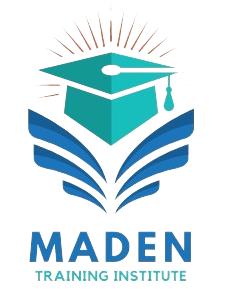
Programming (Any language of your choice)
-
Python: Known for its simplicity and readability, Python is a versatile language used in web development, data analysis, artificial intelligence, scientific computing, and more. It emphasizes code readability and has a vast ecosystem of libraries and frameworks.
-
JavaScript: Primarily used for web development, JavaScript is a dynamic language that runs in web browsers, enabling interactive user interfaces and dynamic content on websites. It's also increasingly used in server-side development (Node.js) and for building mobile apps (React Native, NativeScript).
-
Java: A widely-used, object-oriented language known for its portability, Java is used for developing desktop, web, and mobile applications. It's also popular in enterprise environments for building large-scale systems.
-
C++: A powerful, high-performance language used in system programming, game development, and applications requiring high efficiency. It's known for its speed and ability to control hardware directly.
-
C#: Developed by Microsoft, C# is used primarily for building Windows applications, web applications (with ASP.NET), and games using the Unity game engine. It's similar to Java and is widely used in enterprise environments.
-
Swift: Developed by Apple, Swift is used for building applications for macOS, iOS, watchOS, and tvOS. It's designed to be safe, fast, and expressive, making it popular among Apple developers.
-
Kotlin: A modern, statically-typed language developed by JetBrains, Kotlin is often used for Android app development. It's interoperable with Java, making it easy to adopt for existing Java projects.
-
Ruby: Known for its simplicity and productivity, Ruby is used primarily in web development, particularly with the Ruby on Rails framework. It emphasizes developer happiness and convention over configuration.
-
PHP: A server-side scripting language used for web development, PHP is widely used for building dynamic websites and web applications. It's known for its ease of use and integration with databases like MySQL.
-
Go (Golang): Developed by Google, Go is a statically-typed language known for its simplicity, concurrency support, and efficiency. It's used for building scalable, high-performance systems and web services.
Course Description:
The Programming Languages Fundamentals course provides an introduction to the fundamental concepts and principles underlying various programming languages. Students will explore different programming paradigms, syntax, semantics, and language features through theoretical instruction and practical exercises. By gaining a broad understanding of programming languages, students will be better equipped to learn new languages and adapt to different programming environments.
Course Objective:
The primary objective of this course is to introduce students to the core concepts of programming languages and equip them with the foundational knowledge needed to understand and work with different programming languages. By the end of the course, students should be able to:
- Understand the basic principles and paradigms of programming languages, including imperative, functional, object-oriented, and declarative programming.
- Analyze and compare the syntax, semantics, and features of different programming languages.
- Write simple programs in multiple programming languages to solve computational problems.
- Recognize common programming patterns and idioms across different languages.
- Demonstrate proficiency in reading and interpreting code written in various programming languages.
- Apply programming language concepts to improve code readability, maintainability, and performance.
- Evaluate programming languages based on factors such as performance, expressiveness, and suitability for specific tasks.
Course Topics:
- Introduction to Programming Languages
- Programming Paradigms: Imperative, Functional, Object-Oriented, Declarative
- Syntax and Semantics
- Data Types and Variables
- Control Structures: Conditionals and Loops
- Functions and Procedures
- Error Handling and Exception Handling
- Memory Management and Resource Allocation
- Concurrency and Parallelism
- Metaprogramming and Reflection
Instructional Methods:
- Lectures: Theoretical concepts and programming language features will be introduced through instructor-led lectures.
- Coding Labs: Hands-on coding exercises and projects to reinforce learning and practice programming skills in different languages.
- Language Comparisons: Comparative analysis of programming languages to understand their differences and similarities.
- Code Reviews: Peer and instructor-led code reviews to provide feedback on code quality and best practices.
- Case Studies: Analysis of real-world applications and systems built using different programming languages.
Prerequisites:
There are no formal prerequisites for this course. However, students should have basic computer literacy and familiarity with fundamental programming concepts such as variables, control structures, and functions.
Assessment:
Assessment in this course will be based on a combination of the following:
- Programming Assignments: Completion of programming assignments in different languages to demonstrate understanding of language features and concepts.
- Language Comparison Projects: Comparative analysis of programming languages based on specified criteria.
- Quizzes and Tests: Assessments may include quizzes or tests on programming language concepts, syntax, and semantics.
- Participation: Active participation in coding labs, discussions, and language comparisons.
Course Materials:
- Textbooks: Selected textbooks and resources covering programming language fundamentals and concepts.
- Online Resources: Tutorials, documentation, and online forums for further learning and support.
- Programming Environments: Access to programming environments and tools for practicing coding in multiple languages.
Career Opportunities:
Completion of this course will provide students with a strong foundation in programming languages, which is valuable for various careers in software development and computer science. Career opportunities include:
- Software Developer
- Systems Analyst
- Technical Consultant
- Quality Assurance Engineer
- Data Analyst
- IT Project Manager
- Software Architect


